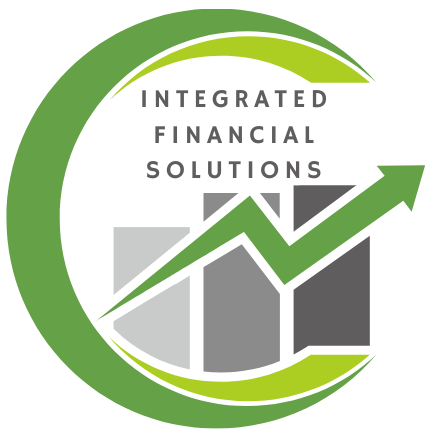Let’s face it — the tax code wasn’t written to favor W-2 employees.
It was built to reward business owners, investors, and entrepreneurs who understand how to work the system (legally).
If you’re a high-income entrepreneur earning $250K+ a year, taxes are probably one of your biggest expenses.
But here’s the good news:
There are strategies to reduce that tax bill — significantly.
The bad news?
Most entrepreneurs wait until tax season to think about it — and by then, it’s often too late.
So let’s fix that.
Here are some of the best tax strategies for high-income entrepreneurs to keep more of what you earn.
1. 🧾 Max Out Strategic Deductions
You probably already know about basic business deductions — laptops, software, rent, marketing, etc.
But are you going deeper?
High earners should be maximizing:
- Home office deductions (the right way — even for partial space)
- Auto expenses using the actual method or standard mileage
- Business meals (50–100% depending on the context)
- Health insurance premiums if self-employed
- Continuing education if it directly relates to your business
- Subscriptions, memberships, and professional dues
- Startup costs if you launched something new this year
If you’re not tracking this in real time with professional bookkeeping, you’re likely leaving thousands on the table.
2. 🏦 Set Up a Retirement Plan (Beyond the IRA)
When you’re self-employed, you don’t just save for retirement — you reduce your taxable income while doing it.
High-income entrepreneurs should be thinking bigger than just a Traditional or Roth IRA.
Here’s what else is on the table:
- SEP IRA – Up to 25% of compensation or $69,000 (2024)
- Solo 401(k) – Up to $69,000 in 2024 with employee and employer contributions
- Defined Benefit Plan – For ultra-high earners with consistent profits
These can potentially eliminate tens of thousands in taxable income each year.
3. 🧠 Use the S-Corp Strategy
If you’re a sole proprietor or single-member LLC making six figures or more, you might be overpaying in self-employment tax.
That’s where the S-Corp election comes in.
Here’s the basic idea:
- You pay yourself a “reasonable salary” (which is taxed normally)
- You take the rest of your profit as a distribution, which avoids self-employment tax
The result?
Huge savings on payroll taxes — often thousands per year.
But don’t do this blindly. There are costs and rules involved, and it only makes sense above a certain profit threshold.
4. 🏡 Hire Your Kids
This isn’t just a tax strategy — it’s a family wealth-building move.
When you hire your minor children to do real work in your business (social media, admin, filing, modeling, etc.), here’s what happens:
- You get a business deduction for their wages
- They pay zero federal income tax on earnings up to the standard deduction ($14,600 in 2024)
- You move income from your high bracket to their 0% bracket
- You teach them real skills and put them on a financial path early
And yes, it’s 100% legal — when done right.
5. 🏢 Cost Segregation (If You Own Real Estate)
If you own commercial or residential investment properties, cost segregation can accelerate your depreciation.
That means:
- You take massive paper losses now (instead of spread over 27.5–39 years)
- You reduce your taxable income without spending more money
- You can potentially wipe out six figures of income in one year
This is especially powerful when paired with bonus depreciation and used to offset other business income.
6. 💼 Strategic Business Structuring
As your income and ventures grow, your entity structure should grow with you.
Here’s what we help high-income clients consider:
- Holding companies to centralize ownership and limit liability
- Multiple LLCs or S-corps for different income streams
- Partnerships or joint ventures to split income strategically
- Setting up a management company to allocate shared expenses across businesses
Done right, entity structuring can unlock deductions, reduce audit risk, and optimize your entire financial ecosystem.
7. 🧾 Section 199A Deduction (20% Off Pass-Through Income)
If you’re an S-corp, sole proprietor, or partnership, you might be eligible for the Qualified Business Income (QBI) deduction.
That’s up to 20% off your net business income.
There are income limits, phase-outs, and industry restrictions, so this one can get tricky.
But with smart planning — like managing your taxable income to stay below thresholds — it’s an easy way to save thousands.
8. 📈 Use a Fractional CFO or Tax Strategist
You’re the visionary. The builder. The rainmaker.
You shouldn’t be the one deep in tax code, looking for loopholes.
That’s what we do.
A fractional CFO or tax strategist looks at the full picture of your business, investments, and long-term goals to build a tax plan that actually works — and evolves as your income grows.
This isn’t tax preparation.
It’s tax strategy — and for high-income entrepreneurs, it’s non-negotiable.
Final Word: You Earned It — Now Keep It
The IRS isn’t going to send you a letter saying, “Hey, you forgot to deduct this.”
If you don’t proactively use these tax strategies, you’ll keep overpaying year after year.
At Integrated Financial Solutions, we specialize in helping high-income entrepreneurs reduce tax liability, structure their finances, and scale confidently.
Don’t wait until tax time to get smart.
Start now — and let’s build a plan to protect your profits.

